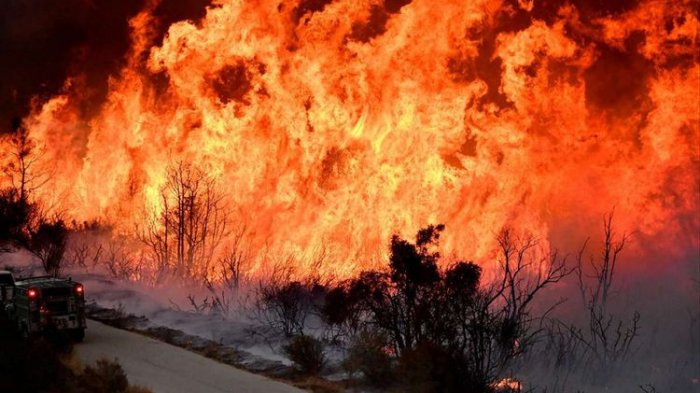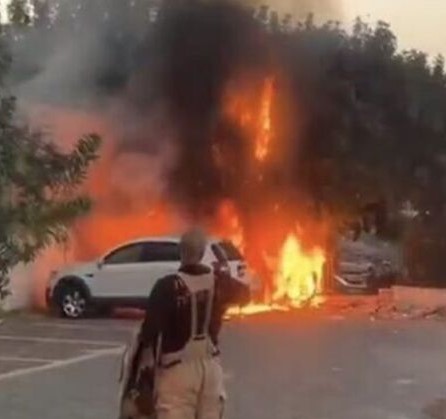
STRATEGIC ASSESSMENT. Large swaths of California are on fire and the situation is likely to worsen, especially given the reticence of the U.S. federal government to acknowledge the severity of climate change and the associated sense of urgency. California is experiencing another unprecedented fire season, with damage on a staggering scale. More than two-thirds of the fruits and vegetables grown in the entire United States originate in California, where accelerating climate change—notably increased heat and decreased regular rainfall—is creating costs and long-term consequences that are unsustainable. And while California is the current focus of attention, it is far from alone in confronting dire climate threats. More recently, both Oregon and Washington state have been devastated. When pressed on how to control forest fires during the first presidential debate, President Trump downplayed the issue of climate change and instead offered a confusing response that referenced forest management, Europeans living in ‘forest cities,’ and ‘raking the forest floor.’
The results of the continued refusal by the U.S. federal government to acknowledge the threats posed by climate change has sidelined the United States on the international stage, while forfeiting an opportunity to lead and build consensus. By withdrawing from the 2015 Paris Agreement on climate change, the Trump administration has squandered US soft power and ceded the initiative to other global powers—including China—to champion the issue and portray the United States as irresponsible and insular. The overwhelming consensus of climate scientists is that climate change is accelerating primarily due to human impacts on the environment, including the emission of greenhouse gases such as methane and carbon dioxide. Many believe that previous worst-case assumptions are proving inadequate and that cascading effects could soon overwhelm parts of the globe. It is becoming clear that many of the potential negative impacts—rising sea levels, abnormally high atmospheric and oceanic temperatures, and the frequency and severity of droughts and major weather events such as hurricanes—are already ‘baked into’ predictive models. This leaves the international community with a narrow window of time to stave off impending catastrophe.
As with every issue in the United States these days, even the issue of whether and how to respond to climate change has fallen victim to partisan rancor. Inexplicably, science itself has become something to debate, rather than to harness in solving the most pressing issues facing the country and the world. The ongoing U.S. Presidential election might not hinge on climate politics, but how the United States responds to the challenge of climate change will certainly hinge on the results of the election. Another four years of deliberate antagonism toward any federal-led campaign to shift more quickly to a sustainable economy in a changing climate would essentially ensure that the United States will continue to see more wildfires and floods devastating the country. Calls for more, not less coal use, rollbacks of automobile mileage standards, and the erosion of national environmental laws protecting air and water are myopic policies that will inevitably harm the United States. In the Vice Presidential debate last week, Vice President Mike Pence refused to label climate change as an existential threat and pejoratively referenced ‘climate alarmists’ in his response to a question about how the United States should deal with the challenge.
One of the lessons of the Covid-19 pandemic is that ‘black swan’ events—low probability but high impact—can overwhelm a society. And while following public health guidelines until a vaccine can be developed and widely distributed offers the world hope, responding to the effects of climate change will not be as straightforward. This is especially true for countries with fewer available means. The second and third order effects will include shifting migratory patterns, food and water scarcity, as well as intra and inter-state conflict to compete for dwindling resources. In short, a world in the throes of climate change will be a more unstable and dangerous place. By ignoring the warning signs, the United States is failing to exercise leadership on a global scale, while subjecting its domestic population to a future of natural disasters and weather-related emergencies. These challenges are compounded by a growing deficit and a decaying infrastructure. The United States is stuck in a counterproductive cycle of denialism and desperately needs competent leadership to address the growing litany of challenges facing Washington’s ability to lead both at home and abroad (TSC).








